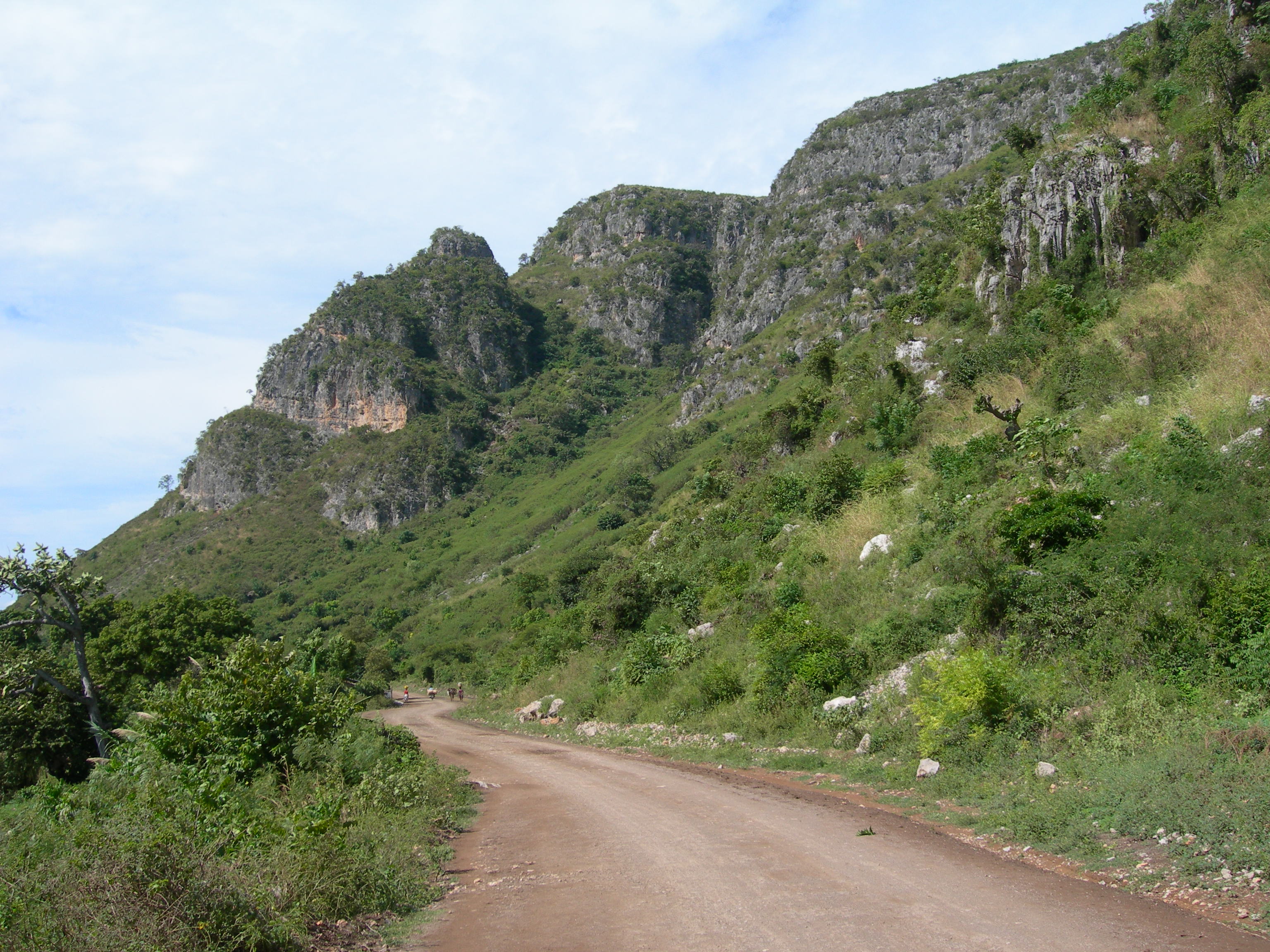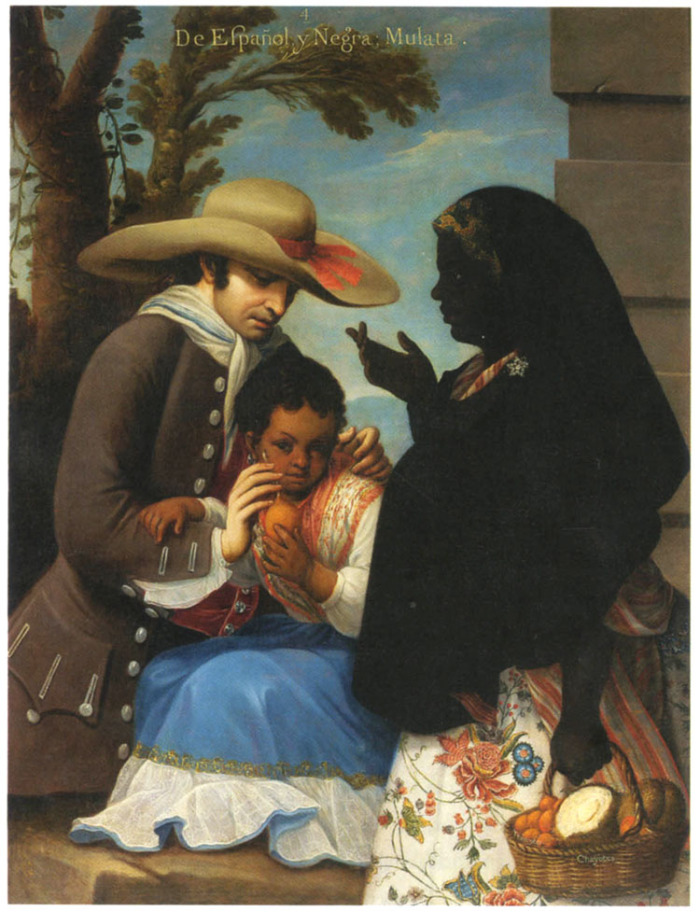|
Second Empire Of Haiti
The Second Empire of Haiti, officially known as the Empire of Haiti (french: link=no, Empire d'Haïti, ht, Anpi Ayiti), was a state which existed from 1849 to 1859. It was established by the then-President, former Lieutenant General and Supreme Commander of the Presidential Guards under President Riché, Faustin Soulouque, who, inspired by Napoleon, declared himself Emperor Faustin I on 26 August 1849 at the Cathedral of Our Lady of the Assumption in Port-au-Prince. Faustin's unsuccessful invasions (in part due to the diplomatic interference of the United States and Spain) in an attempt to reconquer the Dominican Republic (in 1849, 1850, 1855 and 1856), which had declared independence from Haiti in 1844, undermined his control over the country. In 1858, a revolution began, led by General Fabre Geffrard, Duke of Tabara. In December of that year, Geffrard defeated the Imperial Army and seized control of most of the country. As a result, the Emperor abdicated his throne on 15 Ja ... [...More Info...] [...Related Items...] OR: [Wikipedia] [Google] [Baidu] |
Faustin Soulouque
Faustin-Élie Soulouque (15 August 1782 – 3 August 1867) was a Haitian politician and military commander who served as President of Haiti from 1847 to 1849 and Emperor of Haiti from 1849 to 1859. Soulouque was a general in the Haitian Army when he was appointed President of Haiti. He acquired autocratic powers, purged the army of the ruling elite, installed black loyalists in administrative positions and the nobility, and created a secret police and private army. Soulouque was an enthusiastic '' vodouisant'', maintaining a staff of bokors and mambos, and gave the stigmatized vodou religion semi-official status which was openly practiced in Port-au-Prince. Soulouque declared the Second Empire of Haiti in 1849 after being proclaimed Emperor under the name Faustin I, and formally crowned in 1852. Several unsuccessful attempts to reconquer the Dominican Republic eroded his support and he abdicated in 1859 under pressure from General Fabre Geffrard and Dominican military victory. ... [...More Info...] [...Related Items...] OR: [Wikipedia] [Google] [Baidu] |
Petit-Goâve
Petit-Goâve ( ht, Ti Gwav) is a coastal commune in the Léogâne Arrondissement in the Ouest department of Haiti. It is located southwest of Port-au-Prince. The town has a population of approximately 12,000 inhabitants. History The town is one of the oldest cities of the country, and was named ''Goâve'' by the Amerindians. The Spanish called it ''Aguava'' at the end of the 16th century. After French colonization through the releasing of the Spanish, the French divided the city into two halves; Grand-Goâve and Petit-Goâve. Petit-Goâve became a wealthy settlement and briefly functioned as a de facto capital of the prosperous colony of Saint-Domingue. It is also very famous for its sweet candy called ''douce macoss''. January 2010 earthquake The town was significantly affected by the 12 January 2010 earthquake. On 20 January a strong aftershock of magnitude 5.9 Mw struck Haiti. The U.S. Geological Survey reported that its epicenter was almost exactly under Petit-Goâve ... [...More Info...] [...Related Items...] OR: [Wikipedia] [Google] [Baidu] |
Abdication
Abdication is the act of formally relinquishing monarchical authority. Abdications have played various roles in the succession procedures of monarchies. While some cultures have viewed abdication as an extreme abandonment of duty, in other societies (such as pre-Meiji Restoration Japan), abdication was a regular event and helped maintain stability during political succession. Historically, abdications have occurred both by force (where the regnant was forced to abdicate on pain of death or other severe consequences) and voluntarily. Some rulers are deemed to have abdicated ''in absentia'', vacating the physical throne and thus their position of power, although these judgements were generally pronounced by successors with vested interests in seeing the throne abdicated, and often without or despite the direct input of the abdicating monarch. Recently, due to the largely ceremonial nature of the regnant in many constitutional monarchies, many monarchs have abdicated due to old ... [...More Info...] [...Related Items...] OR: [Wikipedia] [Google] [Baidu] |
Artibonite (department)
Artibonite ( French) or Latibonit (Haitian Creole) is one of the ten departments of Haiti located in central Haiti. With an area of 4,887 km2 it is Haiti's largest department. As of 2015, its estimated population was 1,727,524. The region is the country's main rice-growing area. The main cities are Gonaïves (the capital) and Saint-Marc. In February 2004 an insurgency tried unsuccessfully to declare Artibonite's independence. Etymology The name L'Artibonite is derived from the Artibonite River the longest river on the Quisqueya island. L'Artibonite is derived from the Taino worJa'tibonicu'meaning The Great High Place of the Sacred Waters. Under Toussaint's administration of the island, the department was known as Toussaint's Department. History Taino Period During that period the actual department seats between the three casicas of Marien, Maguana, and Xaragua. The border between those chiefdoms is assumed to be the Artibonite River. Although the department's capital ... [...More Info...] [...Related Items...] OR: [Wikipedia] [Google] [Baidu] |
Faustin I
Faustin-Élie Soulouque (15 August 1782 – 3 August 1867) was a Haitian politician and military commander who served as President of Haiti from 1847 to 1849 and Emperor of Haiti from 1849 to 1859. Soulouque was a general in the Haitian Army when he was appointed President of Haiti. He acquired autocratic powers, purged the army of the ruling elite, installed black loyalists in administrative positions and the nobility, and created a secret police and private army. Soulouque was an enthusiastic '' vodouisant'', maintaining a staff of bokors and mambos, and gave the stigmatized vodou religion semi-official status which was openly practiced in Port-au-Prince. Soulouque declared the Second Empire of Haiti in 1849 after being proclaimed Emperor under the name Faustin I, and formally crowned in 1852. Several unsuccessful attempts to reconquer the Dominican Republic eroded his support and he abdicated in 1859 under pressure from General Fabre Geffrard and Dominican military victory. S ... [...More Info...] [...Related Items...] OR: [Wikipedia] [Google] [Baidu] |
Pedro Santana
Pedro Santana y Familias, 1st Marquess of Las Carreras (June 29, 1801June 14, 1864) was a Dominican military commander and royalist politician who served as the president of the junta that had established the First Dominican Republic, a precursor to the position of the President of the Dominican Republic, and as the first President of the republic in the modern line of succession. A traditional royalist who was fond of the Monarchy of Spain and the Spanish Empire, he ruled as a governor-general, but effectively as an authoritarian dictator. During his life he enjoyed the title of " Libertador de la Patria." Santana was a lifelong supporter of the Dominican revolt against the Haitian occupation and a noted general during the Dominican War of Independence (1844–1856). Unlike many of his political opponents who wanted to ultimately establish an independent Dominican state, Santana sought to reintegrate Hispaniola into the Spanish Empire. He oversaw the reestablishment of the ... [...More Info...] [...Related Items...] OR: [Wikipedia] [Google] [Baidu] |
Absolute Monarchy
Absolute monarchy (or Absolutism as a doctrine) is a form of monarchy in which the monarch rules in their own right or power. In an absolute monarchy, the king or queen is by no means limited and has absolute power, though a limited constitution may exist in some countries. These are often hereditary monarchies. On the other hand, in constitutional monarchies, in which the authority of the head of state is also bound or restricted by the constitution, a legislature, or unwritten customs, the king or queen is not the only one to decide, and their entourage also exercises power, mainly the prime minister. Absolute monarchy in Europe declined substantially following the French Revolution and World War I, both of which led to the popularization of theories of government based on the notion of popular sovereignty. Absolute monarchies include Brunei, Eswatini, Oman, Saudi Arabia, Vatican City, and the individual emirates composing the United Arab Emirates, which itself is a fe ... [...More Info...] [...Related Items...] OR: [Wikipedia] [Google] [Baidu] |
Mulattoes
(, ) is a racial classification to refer to people of mixed African and European ancestry. Its use is considered outdated and offensive in several languages, including English and Dutch, whereas in languages such as Spanish and Portuguese is not, and can even be a source of pride. A () is a female ''mulatto''. Etymology The English term and spelling ''mulatto'' is derived from the Spanish and Portuguese . It was a common term in the Southeastern United States during the era of slavery. Some sources suggest that it may derive from the Portuguese word (from the Latin ), meaning 'mule', the hybrid offspring of a horse and a donkey. The Real Academia Española traces its origin to in the sense of hybridity; originally used to refer to any mixed race person. The term is now generally considered outdated and offensive in non-Spanish and non-Portuguese speaking countries, and was considered offensive even in the 19th century. Jack D. Forbes suggests it originated in the Arabic ... [...More Info...] [...Related Items...] OR: [Wikipedia] [Google] [Baidu] |
Coronation
A coronation is the act of placement or bestowal of a coronation crown, crown upon a monarch's head. The term also generally refers not only to the physical crowning but to the whole ceremony wherein the act of crowning occurs, along with the presentation of other items of regalia, marking the formal investiture of a monarch with regal power. Aside from the crowning, a coronation ceremony may comprise many other rituals such as the taking of special vows by the monarch, the investing and presentation of regalia to the monarch, and acts of homage by the new ruler's subjects and the performance of other ritual deeds of special significance to the particular nation. Western-style coronations have often included anointing the monarch with holy anointing oil, holy oil, or chrism as it is often called; the anointing ritual's religious significance follows examples found in the Bible. The monarch's consort may also be crowned, either simultaneously with the monarch or as a separate eve ... [...More Info...] [...Related Items...] OR: [Wikipedia] [Google] [Baidu] |
Traditional African Religions
The traditional beliefs and practices of African people are highly diverse beliefs that include various ethnic religions.Encyclopedia of African Religion (Sage, 2009) Molefi Kete Asante Generally, these traditions are oral rather than scriptural and passed down from one generation to another through folk tales, songs, and festivals, include belief in an amount of higher and lower gods, sometimes including a supreme creator or force, belief in spirits, veneration of the dead, use of magic and traditional African medicine. Most religions can be described as animistic with various polytheistic and pantheistic aspects. The role of humanity is generally seen as one of harmonizing nature with the supernatural. Spread Adherents of traditional religions in Africa are distributed among 43 countries and are estimated to number over 100 million.''Britannica Book of the Year'' (2003), ''Encyclopædia Britannica'' (2003) p.306 According to the ''Encyclopædia Britannica'', as of mid-2002, ... [...More Info...] [...Related Items...] OR: [Wikipedia] [Google] [Baidu] |
Political Repression
Political repression is the act of a state entity controlling a citizenry by force for political reasons, particularly for the purpose of restricting or preventing the citizenry's ability to take part in the political life of a society, thereby reducing their standing among their fellow citizens. It is often manifested through policies such as human rights violations, surveillance abuse, police brutality, imprisonment, involuntary settlement, stripping of citizen's rights, lustration, and violent action or terror such as the murder, summary executions, torture, forced disappearance, and other extrajudicial punishment of political activists, dissidents, or general population. Political repression can also be reinforced by means outside of written policy, such as by public and private media ownership and by self-censorship within the public. Where political repression is sanctioned and organised by the state, it may constitute state terrorism, genocide, politicide or cr ... [...More Info...] [...Related Items...] OR: [Wikipedia] [Google] [Baidu] |









